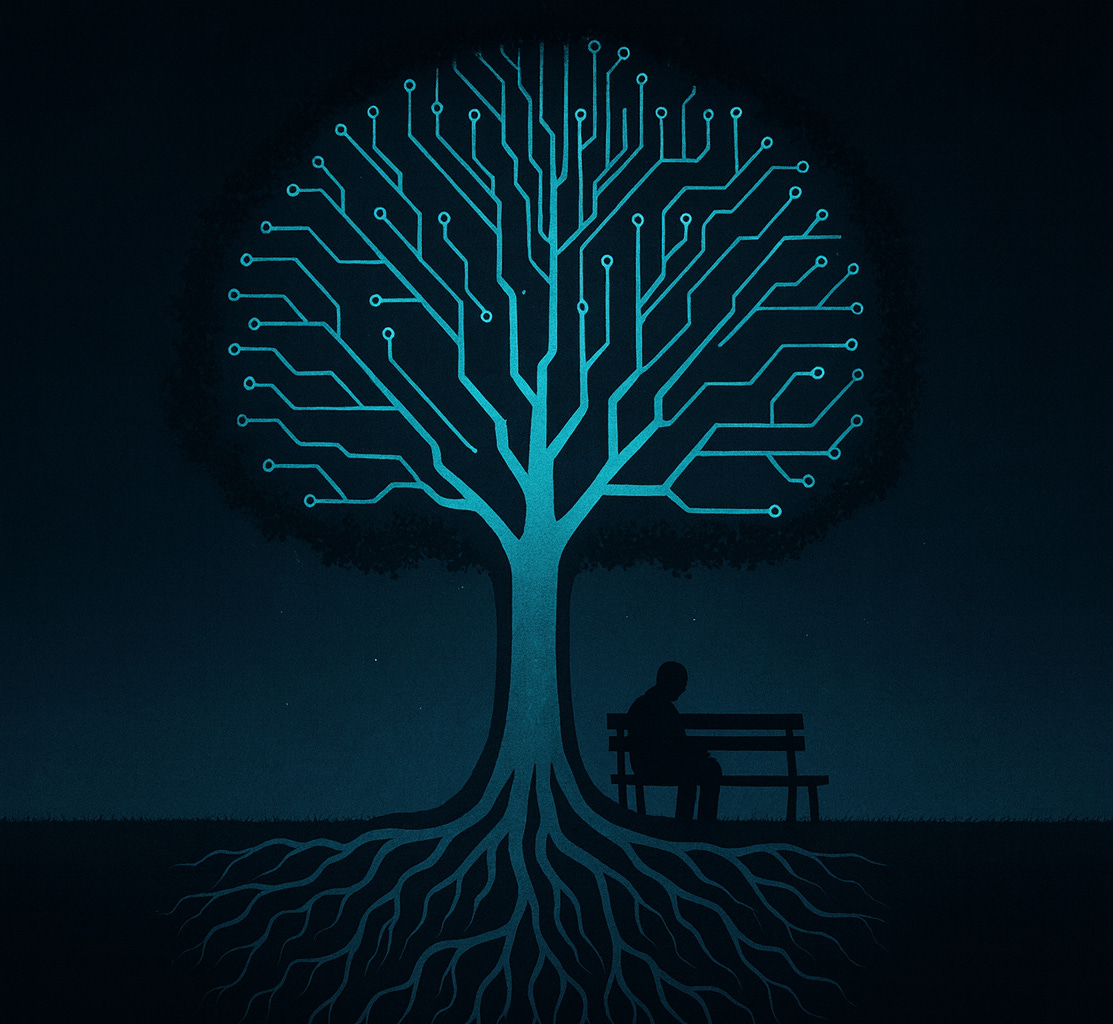A few weeks ago, John listened in on a talk for his MFA program which centered around artificial intelligence in writing. One of his professors said something interesting which John summarized and told me, and soon, I’m going to summarize it and tell you.
Like a game of ‘telephone,’ this is how knowledge travels. Each person remembers and repeats what they believe to be important from the original point. Perhaps they add something, or misremember part of what was said in a way that reflects their own worldview more than the original speaker’s. Then, the next listener repeats the same process, grasping what they are primed to pick up on, and repeating what they deemed important enough to retain.
In this way, despite efforts to credit sources or retain authorship of our most prized points, ideas do not really ‘belong’ to anyone. As they spread, they become more of an average of every mind that has ever encountered them. Perhaps it may not even be too much of a stretch to say that an idea is only as good as the collection of minds which will encounter it.
The reason for this is that we don’t live in a bubble. The ideas which connect humanity are like interconnected tree roots of a forest, sharing knowledge and sustenance and turning all of humanity into more of a unit than a separate entity.
Of course, we have something of a destructive streak. The modern, human-influenced world displaces trees, plants them in the middle of parking garages amidst wood chips and concrete. Poor, lonely things—and we’ve become even lonelier, because in our pursuits of wealth or knowledge or comfort or whatever it is that we actually seek when we’re not just running on autopilot, most of us have gotten lonelier than people were years ago.
Some of this is that it’s easier to be a lonely person today. You don’t go as stir crazy locked in an apartment if you have television and the internet. You can still see people, hear their voices. You can even see them update their thoughts in ‘real-time.’ You can talk to them—on social media—and this is so close to physical connection that one only realizes the bit that is missing later on, when it manifests as a hard-to-identify dissatisfaction or sadness.
This is the world we live in. Families disperse in search of their own path. In new places, it’s harder to put down roots—growth takes generations—so children are not as connected as their parents or grandparents were. The odd family that stays put, doesn’t succumb to this wanderlust, watches everyone leave around them. The ‘neighborhood’ is dying—at least in New York City.
Local legends and traditions die with them. Local accents, like those that can be immediately attributed to “New Yawk” or “Bahston,” lose some of their distinctness. Everyone starts to sound like their television—and to think like it, too.
Now, I’m going to share with you my approximation of John’s approximation of what his professor said during that Zoom meeting:
In a way, AI is functioning as a sort of oral tradition. Folktales and traditions have historically worked as a sort of approximation, an ‘average’ of everyone who has ever passed them down. Similarly, AI takes into account a wide breadth of human knowledge, and distills it into its average, its most central point.
I don’t know how to react to this—whether to call it beautiful or sad. Humanity has isolated itself so, our machines do our connecting for us. The individual is more of an island than ever.
Conversely, humanity has achieved the ultimate connection—we have created a technology which can codify and transmit knowledge for us. AI is our mirror, whether or not we like the fragmented, isolated society that looks back on us when we look upon it.
Language reflects the human instinct to collectivize. “We” invented AI. Well, not really. A handful of engineers did, and a somewhat larger handful of people now know how it works and can replicate the process. But ‘we’ didn’t do it.
Only maybe we did. Maybe, on some larger cosmic scale that most would reject and no one could even pretend to understand, we are connected, and the development of these machines are a corrective measure to address a state of affairs that is so painful and so lonely, it can only be temporary.
Thank you for reading. If you enjoyed this post and would like to support my work, consider becoming a free or paid subscriber.
You can also buy me a coffee.



Many generations, many eons shank's mare, horseback and drawn was the only way to go here, there anywhere.
My grandad's span covered, went from horse and buggies not uncommon (I've still a carbide lamp from a horse drawn carriage of his on my shelves.) to a man on the moon.
Me, party line telephones to cell phones and zoom.
It is what it is is moving farther and faster from what it was.
None the less, AI aside, a lot of young folks, occasionally stumbling but still standing, interesting to see what they'll make and where they'll go.
Excellent article Melissa - Thank you!
I agree with your points with the added point of: Somebody(s) are controlling Ai and filter to us their worldview and censorship. Zuckerberg was joyous a few years back that they were utilizing the model of Yahweh/Jehovah the Old Testament "god" (Psychopath) as their model. Fitting.